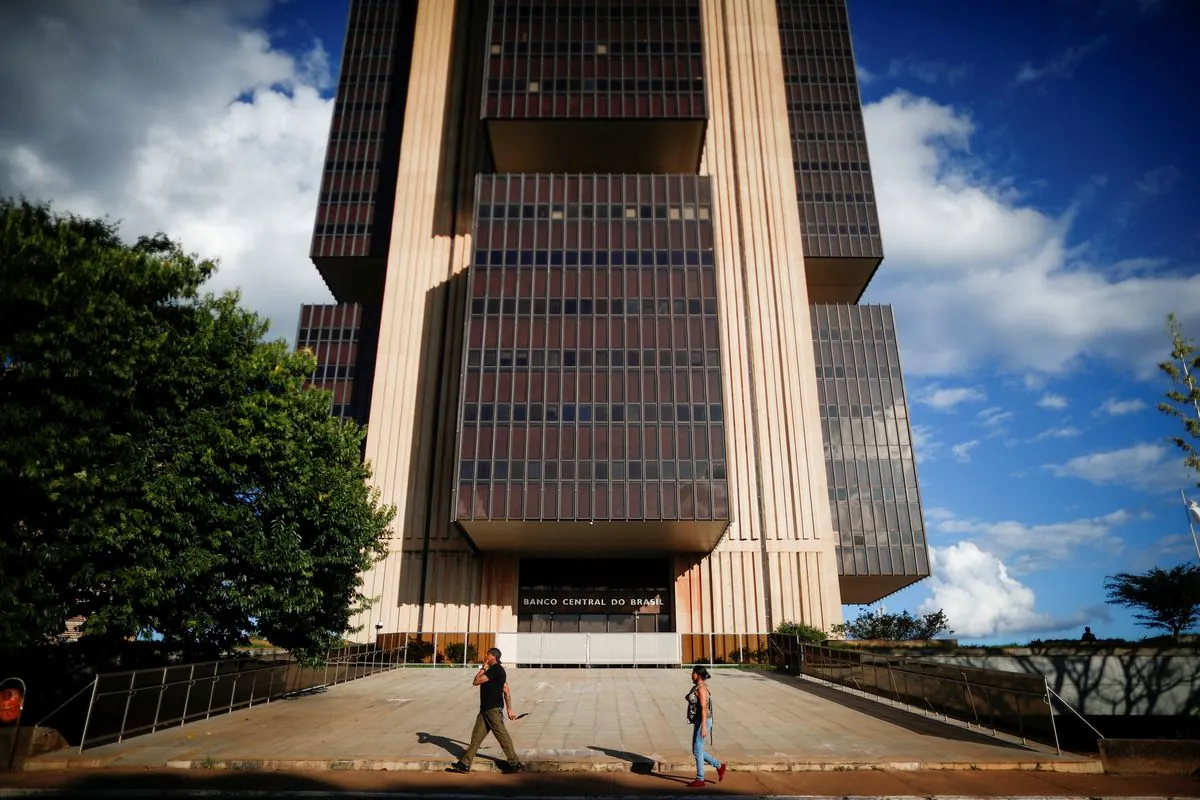In a recent development concerning Brazil's monetary policy leadership, Finance Minister Fernando Haddad has proposed a timeline for announcing the next central bank governor. The suggestion comes as the current governor's term approaches its conclusion, highlighting the importance of a smooth transition in the country's financial governance.
Haddad revealed that he recommended to President Luiz Inácio Lula da Silva that the nomination be disclosed between August and September. This proposal followed discussions with the current central bank governor, Roberto Campos Neto. The finance minister's statement, made at a banking event, underscores the collaborative approach being taken in this crucial decision-making process.
Brazil, the largest economy in South America, has seen its central bank play a pivotal role in shaping the nation's financial landscape since its establishment in 1964. The institution gained formal independence in February 2021, marking a significant milestone in its 60-year history. This independence underscores the importance of the governor's role in maintaining the stability of the Brazilian Real's purchasing power.
President Lula, now serving his third term, reportedly possesses the necessary information to finalize his choice for the new central bank leader. However, no specific date has been set for the announcement. This careful consideration reflects the gravity of the decision, given the central bank's crucial role in implementing monetary policy and managing Brazil's sophisticated financial system.
Initially, the government had planned to reveal the nomination in August, allowing time for a Senate confirmation hearing in early September. However, this timeline has encountered resistance from senators, adding a layer of complexity to the process. The central bank governor's position, with its four-year renewable term, requires careful political navigation.
Amidst these deliberations, Gabriel Galipolo, the current monetary policy director at the central bank, has emerged as a frontrunner to succeed Campos Neto. This potential succession comes at a time when the central bank is actively developing a digital currency project, showcasing the institution's forward-thinking approach.
The selection of the next central bank governor is particularly significant given Brazil's history of economic challenges, including periods of high inflation. The central bank's Monetary Policy Committee (Copom) plays a crucial role in setting interest rates, a key tool in managing inflation and economic stability.
As a member of the BRICS group of emerging economies, Brazil's economic decisions have far-reaching implications. The central bank's management of the floating exchange rate regime and its role in stabilizing the economy in the 1990s underscore the importance of strong leadership in this institution.
"We are carefully considering all aspects to ensure the best leadership for our central bank. The decision will be made with the utmost consideration for Brazil's economic stability and growth."
As the process unfolds, all eyes will be on the Brazilian government's next moves, recognizing the profound impact this decision will have on the nation's economic trajectory and its position in the global financial landscape.
